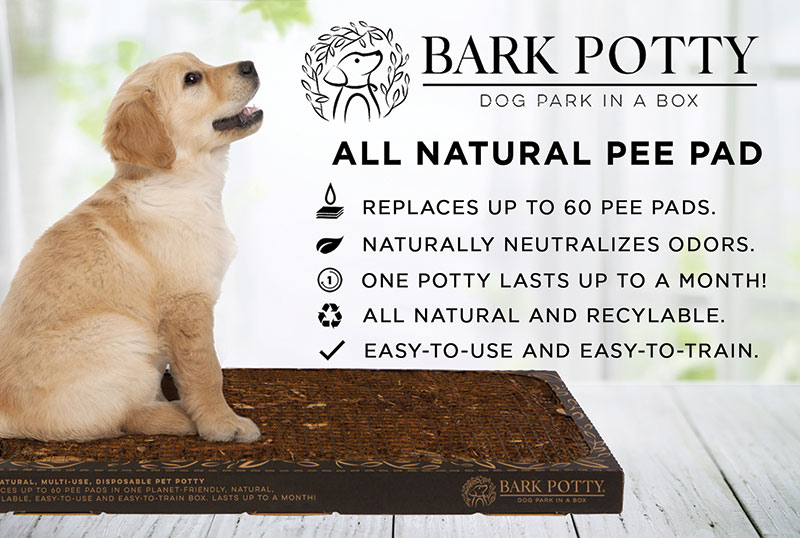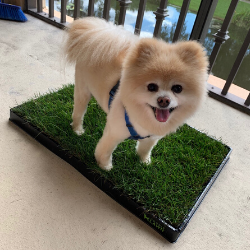My Dog Pees in His Crate (Tips to help you !)
House breaking a dog is something all pet owners deal with at some point or another. But what do you do if your dog pees in his soft crate? The answer depends on several factors including the age or your dog, the breed, and his overall health. Here are some tips to help you deal with dogs who have accidents in crates.
Is your dog a younger puppy?
If your puppy is under three months old, he's probably still getting used to being independent, and he's still adjusting to his new environment.
Puppies this young do not have well-developed bladders yet and will need to pee within 30 minutes of eating or drinking. Your puppy may not want to pee in his crate but simply can't hold it yet or hasn't learned he isn't supposed to. This will come with time.
In this stage, it's important to remain calm and gentle with your puppy. Instead of scolding him for eliminating in his wire crate, focus on rewarding him for doing his business in the correct place.
Your pup will quickly figure out he doesn't enjoy having to sleep in his own waste and DOES enjoy getting a treat for going outside! Be patient and supportive as your puppy grows and matures.
And, as always, putting your puppy on a consistent schedule typically works better than anything else.
Here's some more great info on crates for large dogs and house training a puppy:
Is your pup a rebellious "teenager"?
Most dogs, like humans, go through a rebellious "teenage" phase. For dogs, this typically occurs between eight and eighteen months, depending on the breed. Larger breeds take longer to mature, even though they are physically done growing.
Teenage puppies will push their boundaries, so it is important to remain consistent in their training, schedule, and rewards/consequences.
Even though they may seem to be regressing in their training, they're usually just figuring out what they can and can't get away with. Sometimes, this can manifest in behaviors like peeing in their crate.
They key is to continue their training just as you did when they were younger: reward them for good behavior and do not allow them to get away with bad behavior. You are the pack leader, not them!
Great NATURAL GRASS solution for:
- Apartments / no backyard;
- Housetraining puppies and adult dogs;
- Traveling with pets (hotels, boats, planes);
- Puppies during vaccination periods;
- Harsh weather outside (hurricanes, blizzards, heavy snow, etc.);
- Busy owners;
- Pet parents who have difficulty getting a dog outside;
- Old and arthritic dogs.
What about slow development?
According to veterinarians, some dogs are naturally smarter than others, and even within breeds, there are different variations in intelligence among individuals.
Dogs who may mature slower than others may also take longer to crate train simply because their minds and bladders are still growing. A dog like this may still have accidents in the crate up to their first birthday.
As you get to know your dog, you should be able to tell for yourself how well your dog learns new skills. If they're a slow learner, that's okay. Keep working with them and have patience. They'll get it eventually. Dogs will do their best to please their humans, so be sure to give them the praise they deserve and correct unwanted behaviors gently but firmly.
Sometimes, dogs peeing in crates is a real health issue.
If you have an adult dog who is peeing in his crate, this is a cause for concern, especially if you know they have not had problems previously.
Check the urine itself for blood or cloudiness as this may indicate a Urinary Tract Infection or other concern. Consult your veterinarian and, if possible, come prepared with a urine sample from your dog.
Environmental factors could also contribute to your dog's behavior. If there are any changes in your dog's routine or setting, this could cause stress for your dog, resulting in accidents in his crate. Check for other unusual symptoms or behaviors in your dog and report all abnormalities to your vet so they can prescribe the best treatment.
Is your training consistent?
Make sure you are doing your part in training your dog about acceptable crate behavior. The crate should be a place he goes when he is tired, calm, and has already done his business outside or on a puppy pad. Check for patterns in your dog's potty schedule. If you know he pees an hour after eating, make sure he is not in the crate at that time to avoid learning incorrect behaviors.
Be sure also that you have the correct size of crate for your dog. A dog should have room to stand up and turn around. If they have too much room, they may not recognize that they are soiling their bed, since their "bed" may be the opposite end of the crate. If you have a small puppy and a large crate, you will need to block part of the crate so they only have the room they need. Interested in the dog crates? Click and read about the best airline carrier.
Here's another great tutorial on proper potty training in general:
Here's some more good info on crate training from ThatPetPlace:

Feature image credit (image has been modified): Lisa L Weidmeier
Resources & Further Reading
http://www.cesarsway.com/dog-training/housebreaking-issues/housebreaking
http://dogtime.com/article/adolescents.html
http://pets.webmd.com/dogs/guide/lower-urinary-tract-problems-infections-dogs
http://www.cesarsway.com/dog-behavior/housebreak/puppy-crate-soiling
http://puppyintraining.com/how-can-i-get-my-dog-to-stop-peeing-in-her-crate/



